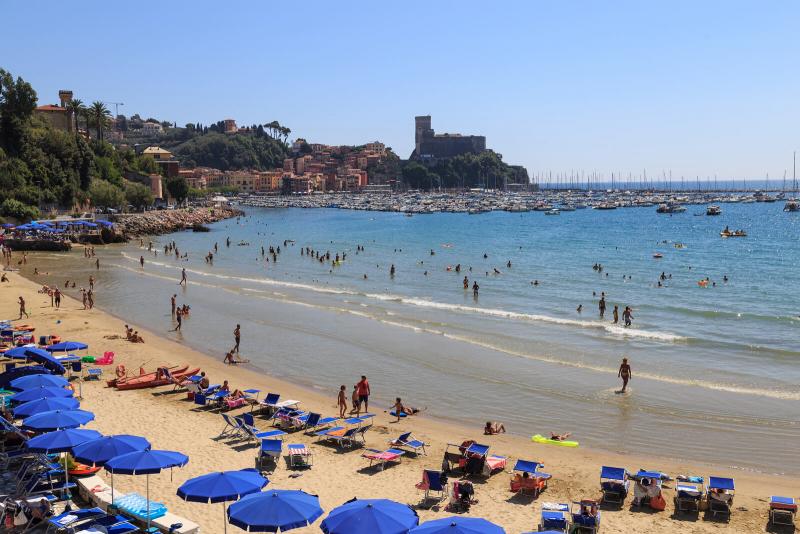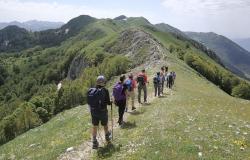August, time for the beach. But before you go, you should know about some of the most common, new or seasonal bans in place, in regards to trash, plastic, pets, umbrellas and more. Remember that often bans vary from location to location or are in place only during the summer season. Always check the signs and be respectful of the environment and others.
Read on for the lowdown on beach bans in Italy.
Massages and Peddlers
It is forbidden to practice or receive therapeutic massages, tattoos, piercings and beauty treatments of all kinds. This may sound strange to someone not familiar with Italian beaches, but it is not at all uncommon to find people offering some of the treatments above, usually with no authorization, in inadequate hygienic conditions, to say the least.
In addition, the ‘Safe Beaches’ ministerial legislation forbids all street vendors without permission, and can also fine those who buy counterfeit goods (clothing items imitating famous brands, CDs and DVDs, software, glasses and watches).
Cigarette butts and trash
The fines for those who throw a cigarette butt on the beach range from a minimum of €60 to a maximum of €300. For those who abandon small waste like paper handkerchiefs, receipts or gum, the sanctions range from a minimum of €30 to a maximum of €150.
At long last, there are some smoke free beaches in Italy, for example in Bibione (Venice), which is smoke free all along the eight kilometers of coastline, and La Pelosa in Sardinia, one of the most beautiful beaches in the Mediterranean, where, incidentally, towels are allowed only if placed on mats in order to protect the sand and save the beach from erosion.
Pets
Rules vary from beach to beach, there is not one national directive. The number of pet friendly beaches is increasing. Some locations, such as Sestri Levante in Liguria, prohibit going with dogs (even if equipped with a muzzle and on a leash) during the summer season. Others, like Cervia on the Adriatic coast, have just opened to dogs, even though with some limitations.
Plastic
Effective May 1, the Tremiti Islands off the Puglia coast have banned the use of plastic cutlery, glasses and containers (bottles are still allowed). Not complying will result in a fine ranging from €50 to €500. The ban on plastic will also become effective from August 31 on the Sicilian islands of Lampedusa and Linosa. Small steps in the right direction and hopefully more beaches will follow suit.
Ball playing
As per a port authority directive, it is forbidden on all beaches to play football, beach tennis, volleyball, bocce, basketball or any other ball game that can clearly disturb bathers, especially by the water’s edge. Use the designated areas instead.
Beach bars, partying & eating on the beach
After much debate, the mayor of Rimini, one of the most popular beach resorts on the Adriatic coast, has put a limit to the opening hours of the so-called ‘chiringuitos,’ the popular kiosks by the sea, crowded with young people until the wee hours. They will now have to close by 11:30 pm, with the exception of two nights a week when they can close at 1 am. In glitzy Forte dei Marmi, a limit has been placed on the number of parties that can be organized on the beach for the summer season.
While on Roman beaches, like at Ostia, the ordinance that banned people from bringing food from home has been lifted; while it is still forbidden to occupy the cabins of beach resorts for other uses than to change oneself (no eating, no overnight stay – yes, sounds weird).
Beach umbrellas (and chairs and personal objects)
Leaving your beach umbrella planted on the beach for days, which some people do to guarantee themselves a spot or for not having to bother with assembling and disassembling it every day, is “an illegal occupation of public land". This also applies to camping on a beach. Violators may spend up to six months in jail or be fined up to € 516.
Shells
It is forbidden to collect shells from the shore; they are part of the ecosystem, and taking them home as a souvenir would alter the ecosystem.
Fishing
It is not possible to fish during the day, but only in the early morning or in the evening when the beaches are empty.




